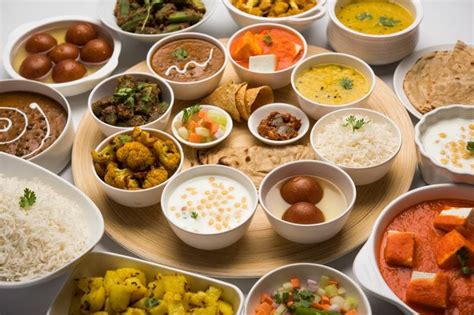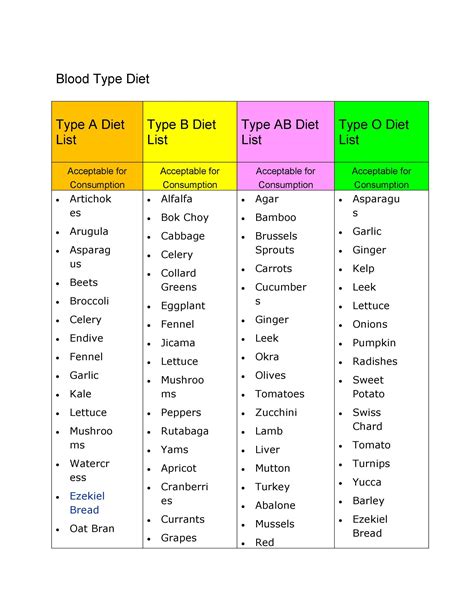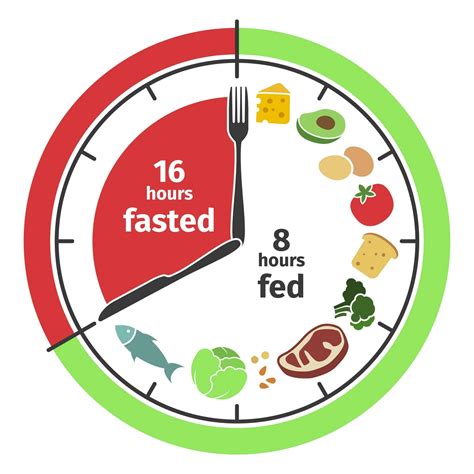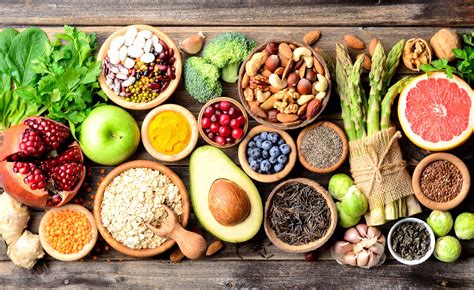Discover the basics, philosophy, and benefits of a Hindu diet and learn how to adopt this lifestyle. Find out which foods are forbidden.
The Basics of Hindu Diet
Contents
Hindu diet is based on the principles of the traditional Indian dietary system, known as Ayurveda. It focuses on the belief that food has an effect not only on the body, but also on the mind and spirit. With this in mind, Hindus aim to eat a diet that promotes inner peace, good health, and spiritual development.
The Hindu diet is largely plant-based, with a focus on vegetables, fruits, whole grains, and legumes. It also includes dairy products, but typically excludes meat, eggs, and fish. The concept of ahimsa, or non-violence, plays a significant role in the Hindu diet, as Hindus strive to avoid harming living beings through their food choices.
Spices and herbs are widely used in Hindu cooking, not only for their flavor, but also for their potential health benefits. Turmeric, ginger, cumin, and coriander are among the most commonly used spices in Hindu cuisine, each with its own unique properties and effects on the body.
By following a Hindu diet, individuals may experience improved digestion, increased energy, and a greater sense of well-being. It is believed that this way of eating can also contribute to a balanced mind and a calm spirit, ultimately leading to a deeper connection with the self and the world around us.
Philosophy Behind Hindu Dietary Restrictions
One of the key principles behind Hindu dietary restrictions is the concept of ahimsa, or non-violence. Hindus believe in the sanctity of all living beings, and this belief extends to the food they consume. By adhering to a vegetarian diet, Hindus aim to minimize harm to other living creatures, as well as maintain a sense of purity and compassion in their own lives. This philosophy is deeply rooted in the Hindu religion and is reflected in the dietary choices of its followers.
Additionally, Hindu dietary restrictions are influenced by the principles of sattva, rajas, and tamas – the three gunas or qualities that are believed to exist in all things. Foods are categorized according to these qualities, with sattvic foods being considered pure, wholesome, and beneficial for spiritual growth, rajasic foods being associated with passion and activity, and tamasic foods being linked to lethargy, ignorance, and negativity. By avoiding rajasic and tamasic foods, Hindus seek to maintain balance and purity in both body and mind.
The idea of self-discipline also plays a significant role in the philosophy behind Hindu dietary restrictions. By abstaining from certain foods, Hindus practice restraint and cultivate self-control. This practice is believed to help individuals achieve a sense of clarity, focus, and spiritual advancement. In essence, the restrictions placed on diet serve as a means of promoting physical, mental, and spiritual well-being within the Hindu community.
In addition to these philosophical underpinnings, Hindu dietary restrictions are also influenced by cultural and traditional norms. Certain foods, such as beef and pork, are prohibited due to religious and historical reasons. These restrictions serve to reinforce the communal identity of Hindus and maintain a connection to their cultural heritage.
Forbidden Foods in Hindu Diet
Hinduism, one of the oldest religions in the world, has a rich cultural heritage and traditions, including dietary restrictions. In Hinduism, the food one consumes is considered to have a direct impact on the mind, body, and spirit. As a result, there are certain foods that are considered inappropriate or forbidden for Hindus to consume.
Meat and Eggs: One of the most well-known restrictions in Hindu diet is the prohibition of consuming meat and eggs. Hindus believe in ahimsa, the concept of non-violence, and therefore abstain from eating animal flesh. This restriction applies to all forms of meat, including beef, pork, and poultry, as well as eggs.
Onions and Garlic: Another key aspect of Hindu diet is the avoidance of onions and garlic. These pungent vegetables are believed to stimulate the senses and increase passion, which is counterproductive to spiritual growth and meditation. As a result, many devout Hindus exclude onions and garlic from their diet.
Additionally, some Hindus refrain from consuming fermented foods and alcohol, as these are believed to cloud the mind and interfere with spiritual practices.
It is important to note that these restrictions may vary among different sects and individuals within the Hindu community, and not all Hindus adhere to these dietary limitations. However, for those who do, it is a way of honoring their religious beliefs and maintaining a balanced and healthy lifestyle.
Benefits of Following a Hindu Diet
Following a Hindu diet can bring numerous benefits to both physical and spiritual well-being. The diet is centered around the concept of ahimsa, or non-violence, which promotes compassion towards all living beings. By consuming foods that are deemed sattvic, or pure, individuals may experience an increase in energy and clarity of mind. This can lead to a greater sense of overall well-being and emotional balance.
In addition, a Hindu diet is rich in plant-based foods such as fruits, vegetables, and grains, which are known to be high in essential vitamins, minerals, and antioxidants. This can help reduce the risk of chronic diseases such as heart disease, diabetes, and certain types of cancer. The emphasis on natural, unprocessed foods can also contribute to maintaining a healthy weight and promoting digestive health.
Furthermore, adhering to a Hindu diet can have spiritual benefits as well. By abstaining from foods that are considered tamasic, or impure, individuals may experience a greater sense of inner peace and harmony. The practice of mindfulness in food consumption can also lead to a deeper connection with the self and a heightened awareness of one’s spiritual journey.
Overall, the benefits of following a Hindu diet extend beyond physical health to encompass mental, emotional, and spiritual well-being. By embracing the principles of non-violence and purity in food choices, individuals can experience a holistic approach to nourishment that promotes harmony within oneself and with the world around them.
How to Adopt a Hindu Diet Lifestyle
The Hindu diet is based on the principles of ahimsa, or non-violence, and the concept of sattva, meaning purity. By adopting a Hindu diet lifestyle, individuals can not only nourish their bodies, but also promote spiritual well-being.
One of the first steps to adopting a Hindu diet lifestyle is to embrace a vegetarian or plant-based diet. This involves eliminating all meat, fish, and eggs from your meals, and instead focusing on consuming a variety of fruits, vegetables, grains, and legumes.
Additionally, it is important to avoid consuming alcohol and stimulants such as coffee, as these are believed to disrupt the balance of the mind and body. Instead, opt for herbal teas and natural beverages to stay hydrated and nourished.
Following a sattvic diet, or one that is pure and wholesome, also means avoiding processed foods and junk foods. Instead, prioritize consuming fresh, whole foods that are prepared with care and attention to detail.
Finally, embracing a Hindu diet lifestyle also includes practicing mindful eating, giving thanks before and after meals, and being conscious of the impact of your food choices on your body, mind, and spirit. By doing so, individuals can experience the numerous benefits of a Hindu diet and cultivate a greater sense of overall well-being.












